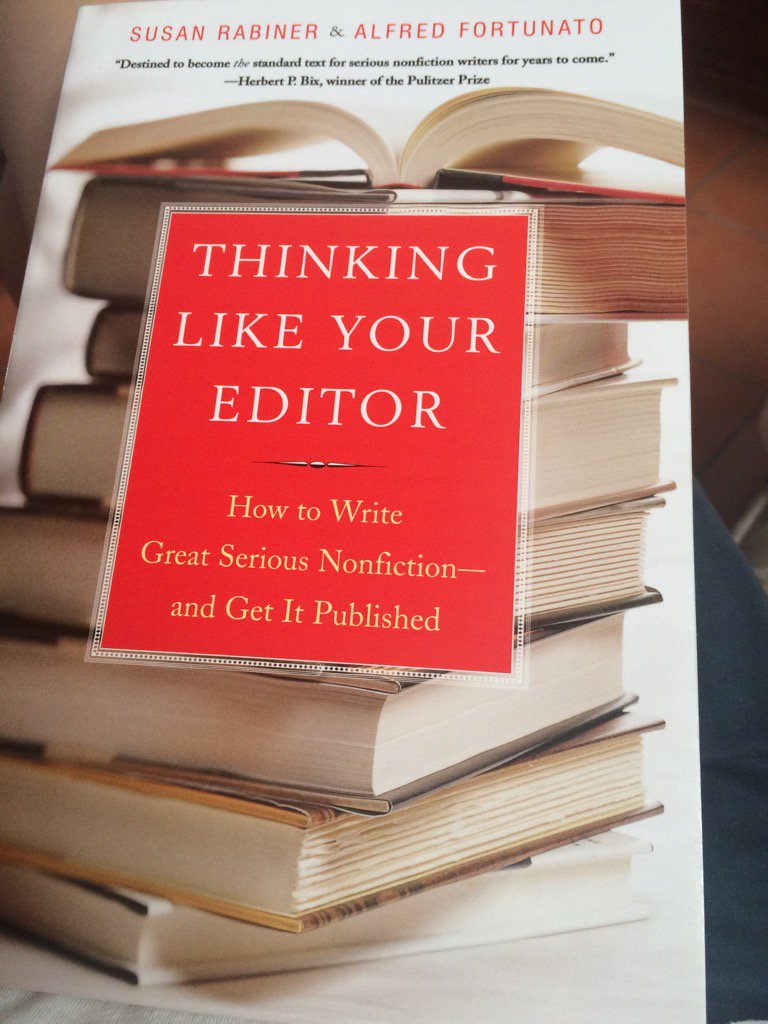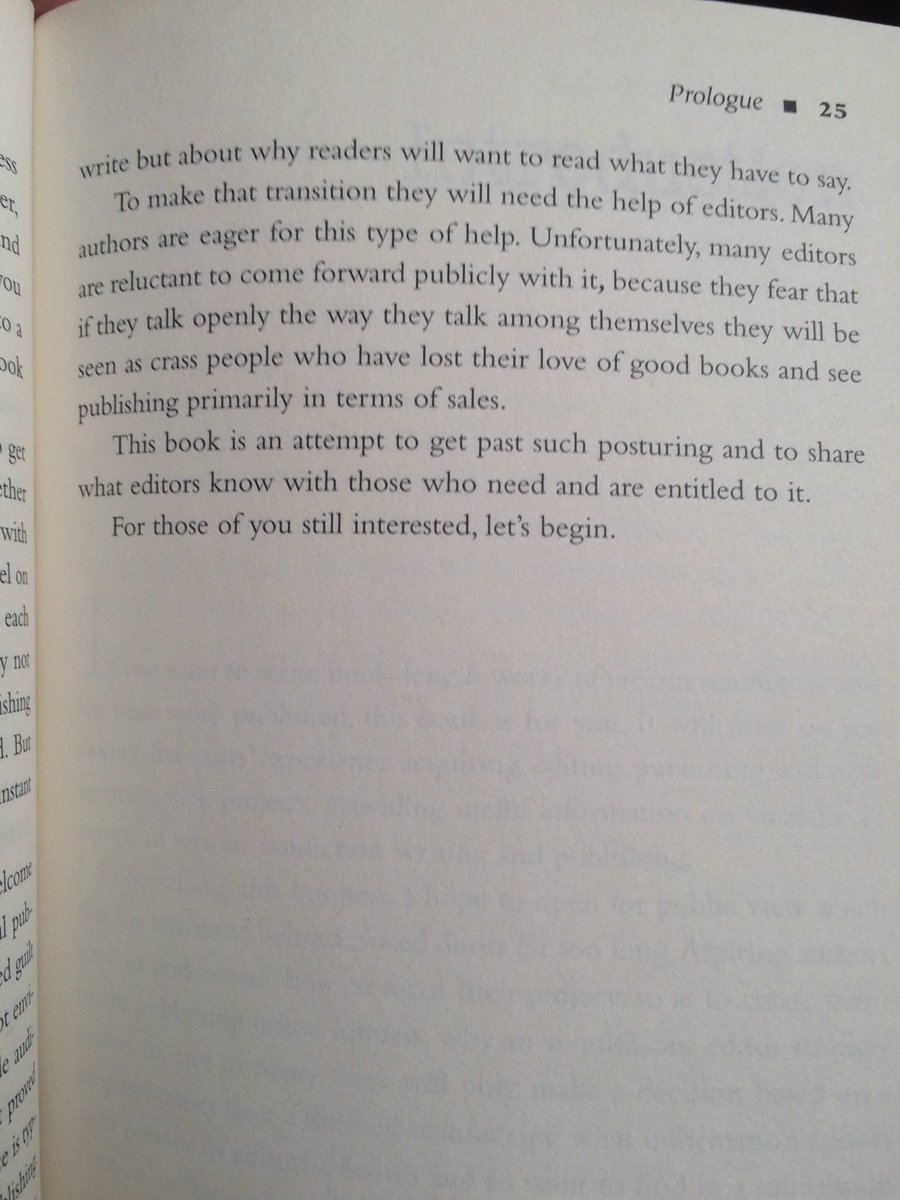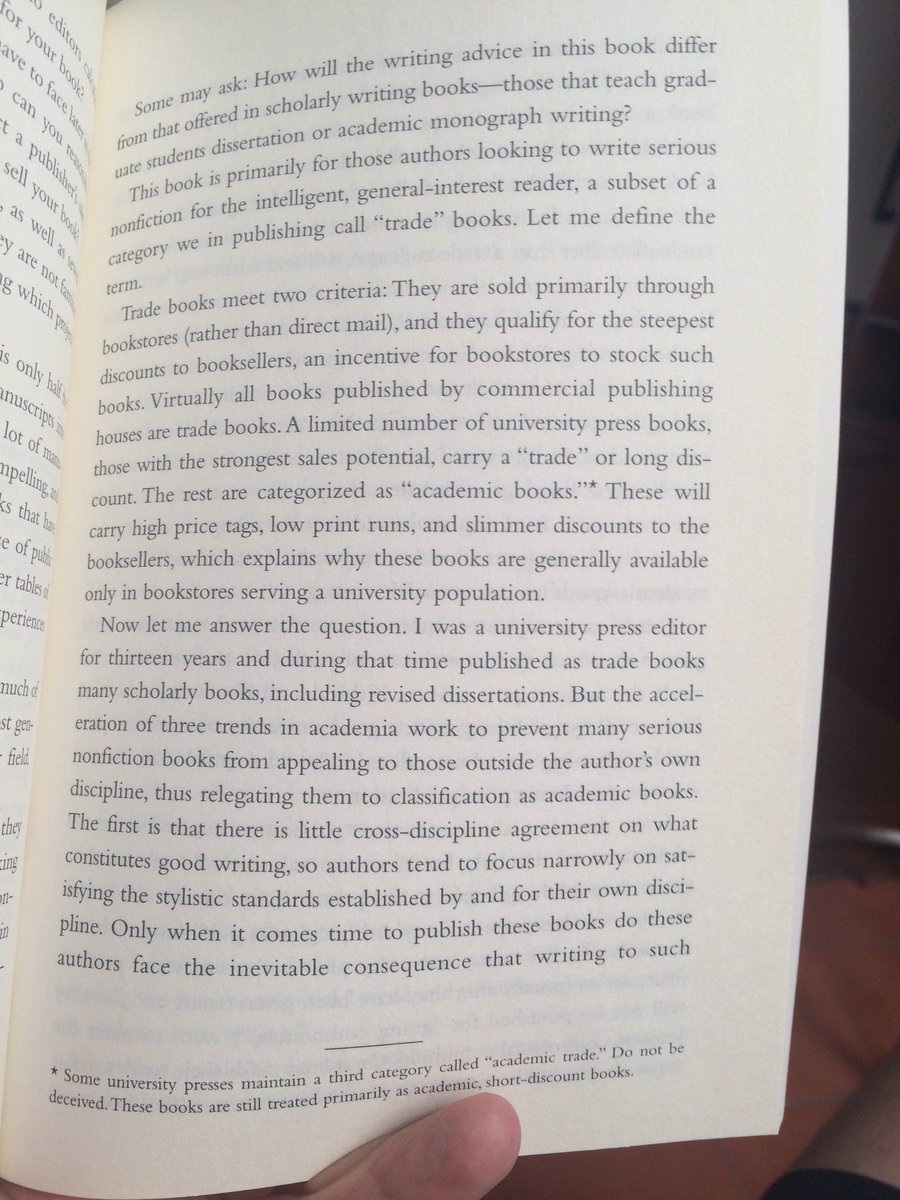#PhDChat PhD students: you're in luck, because for the next couple of weeks, my Reading Notes and book live-tweets will be on books on how to write a doctoral dissertation. I am doing this because I have PhD students at all 3 stages of the process.
I'll be discussing Sternberg amazon.com/gp/product/031… and Bolker amazon.com/gp/product/080… as well as @PJDunleavy 's Authoring a PhD (which I actually already have read, and do recommend, but have never live-tweeted) amazon.com/Authoring-PhD-…
I feel like at some point I read Kate Turabian's book, but I may or may not have done it amazon.com/Manual-Writers… (I do know I have several books on how to survive a doctoral dissertation back home in Vancouver in one of my many boxes, but I don't have them here in Mexico).
First on my list of books is Joan Bolker's Writing your Dissertation in 15 Minutes a Day. Wishing had read this during grad school. 
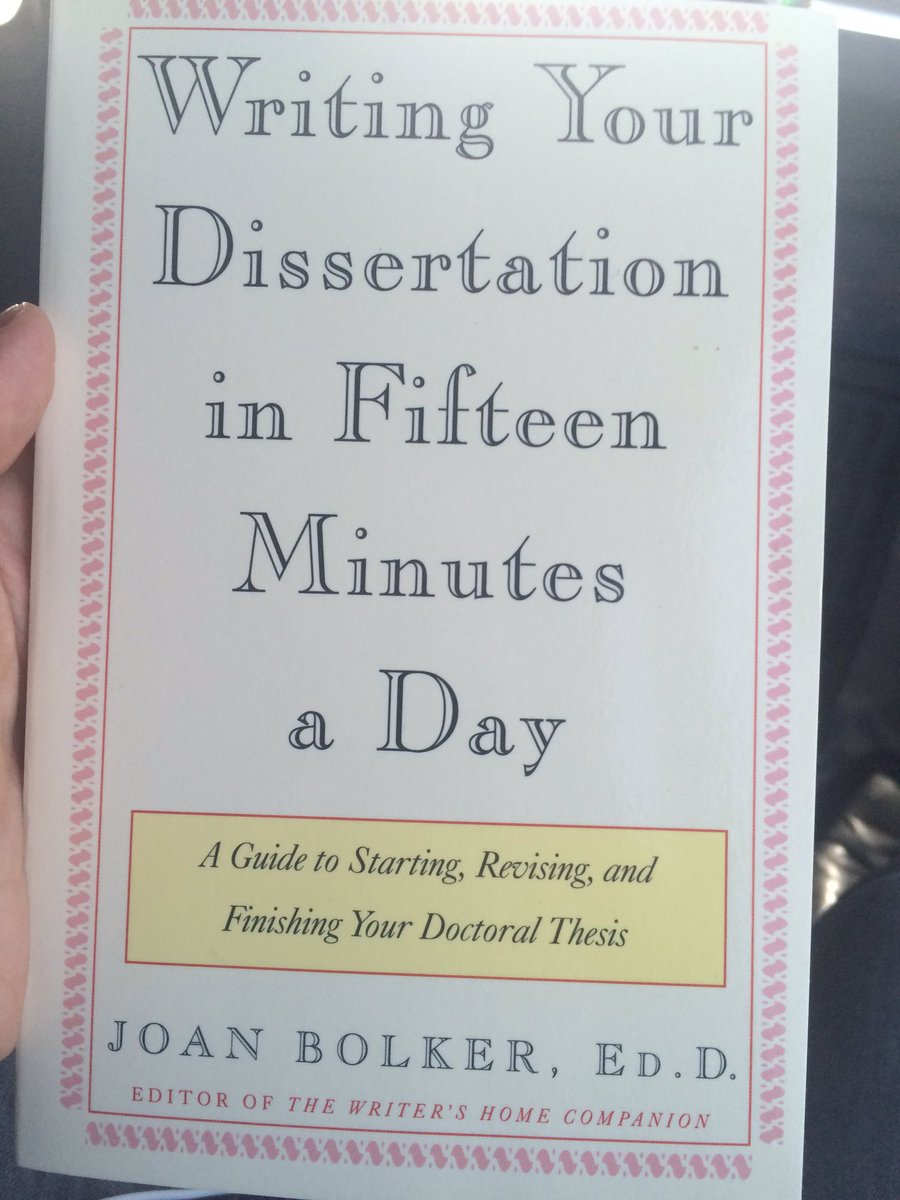
People recommended this book to me during my PhD and I never bought the book nor did I make the time to read it. I didn't HAVE the time.
What sold me from Bolker isn't the advice she gives to PhD students, but the fact that she included a chapter for PhD ADVISORS. Golden. 

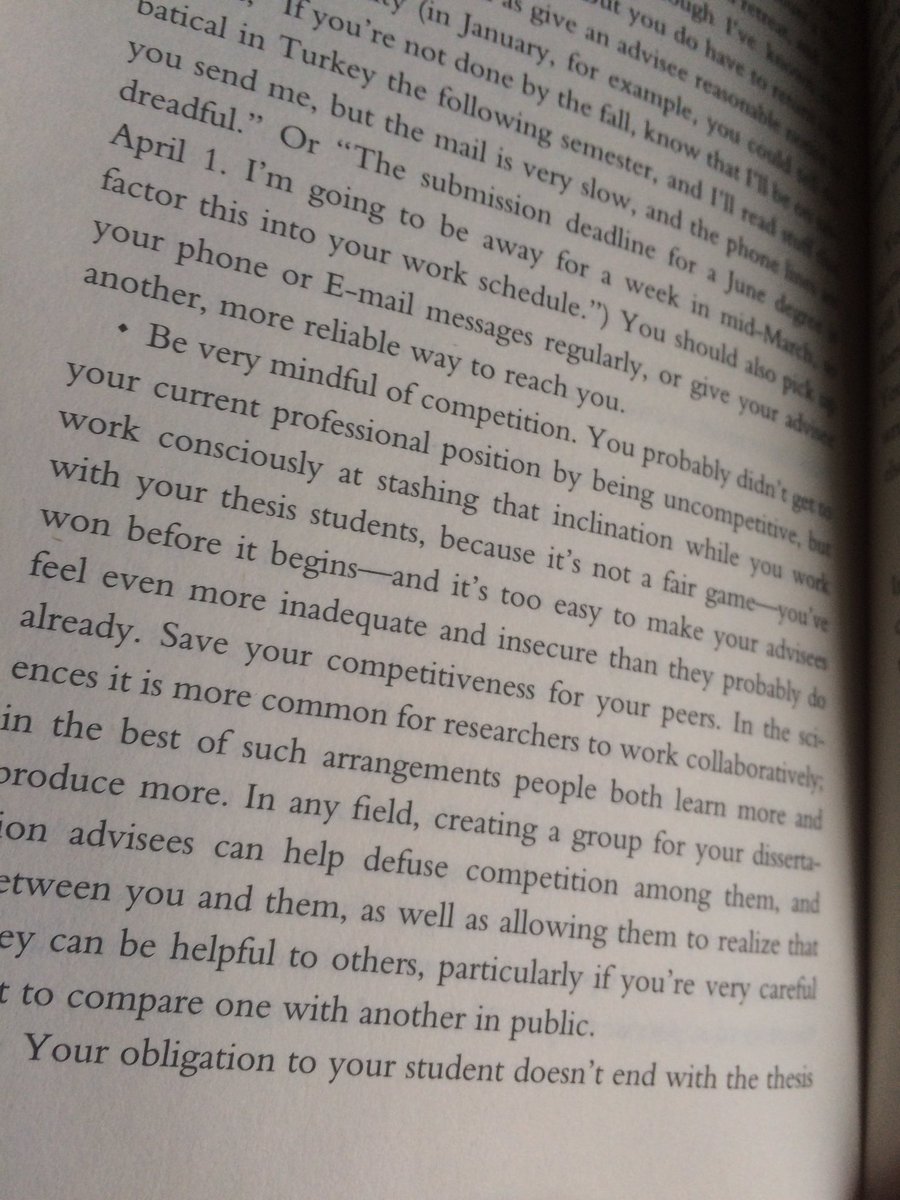
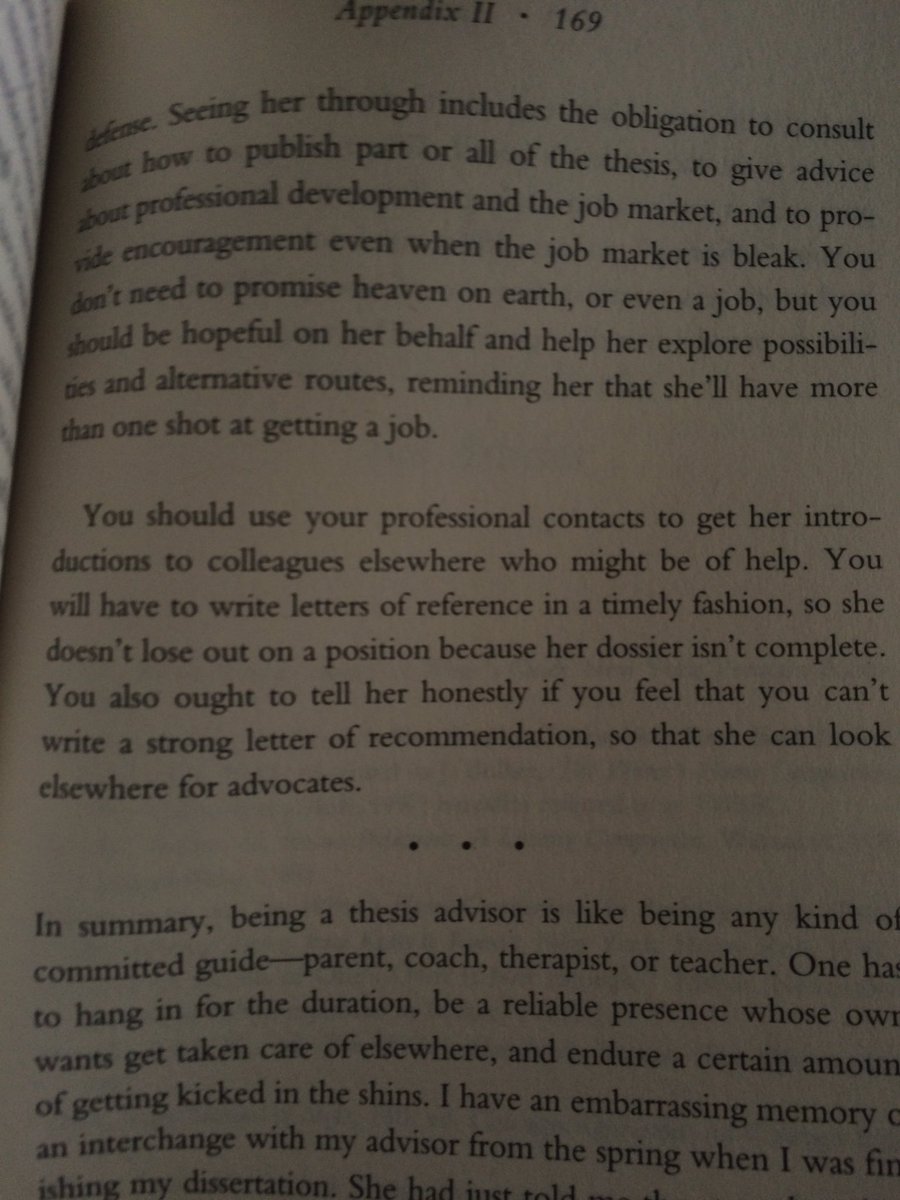
Bolker, Elbow, Skinner, @explorstyle and I all agree that we write TO THINK. I believe that's how we end up producing text that's solid. 
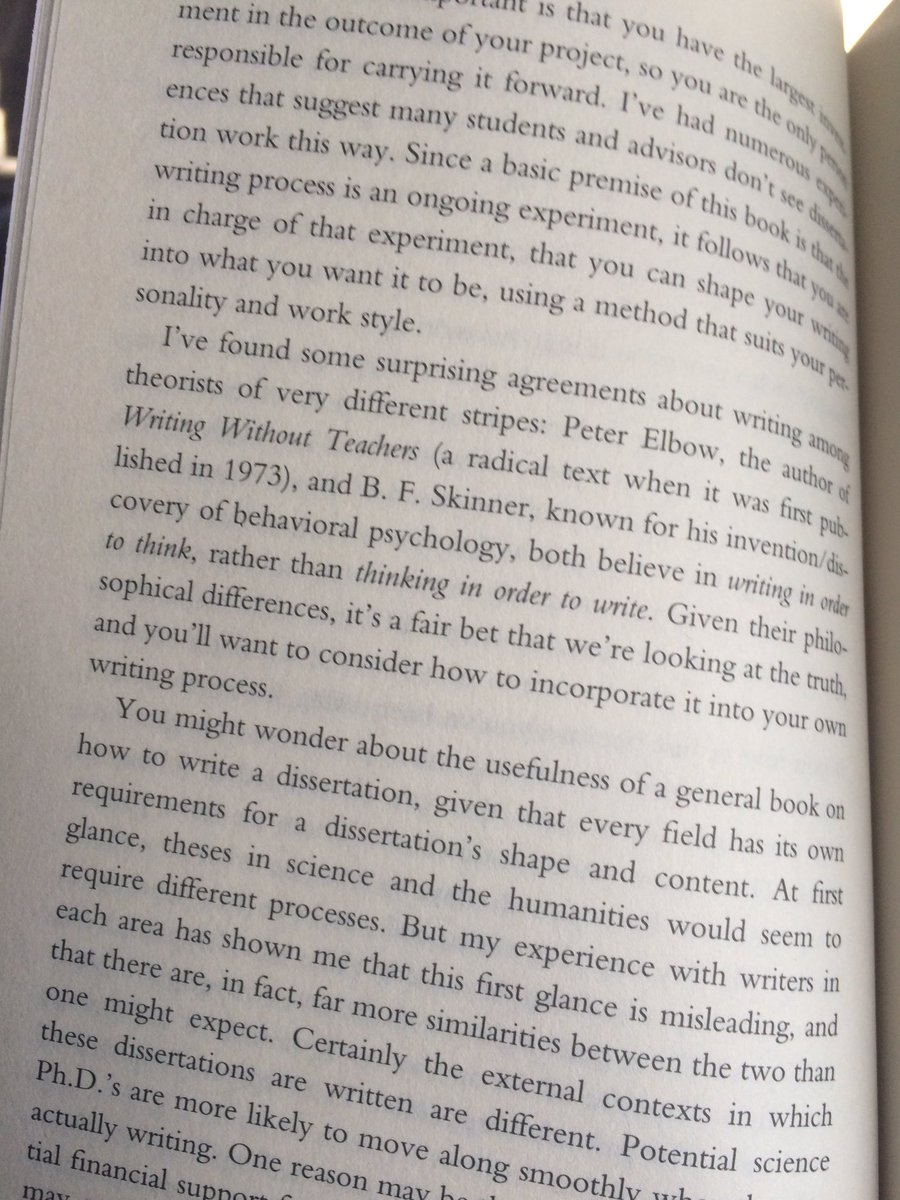
Bolker is right and that's why her book works. You MUST write text for your doctoral dissertation at least 15 minutes every single day.
This doesn't guarantee that you will finish the dissertation in 3, 4 or 5 years, but like Joli Jensen suggests, gives you constant contact.
Reading Jensen's Write No Matter What changed my life and cemented the thought that constant contact with a writing project is fundamental.
This is the same kind of robust advice that is also sprinkled throughout @WendyLBelcher 's Writing a Journal Article in 12 Weeks.
I champion the "write memorandums" and "scribble notes in your Everything Notebook" because that's how you "write your way in". #PhDChat 
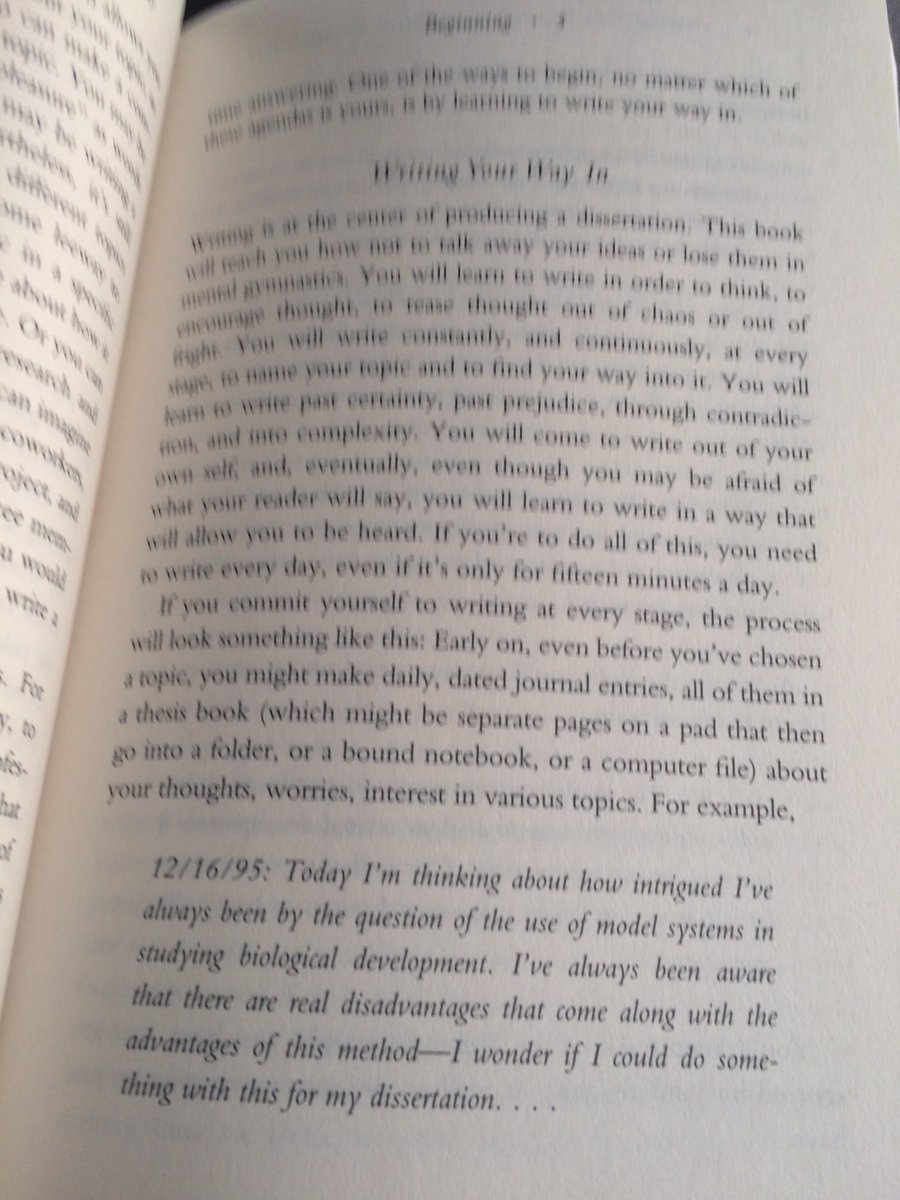
Let me rephrase Bolker's advice on finding advisors: irrelevant if your advisor is famous - he/she should care A LOT about your completion 
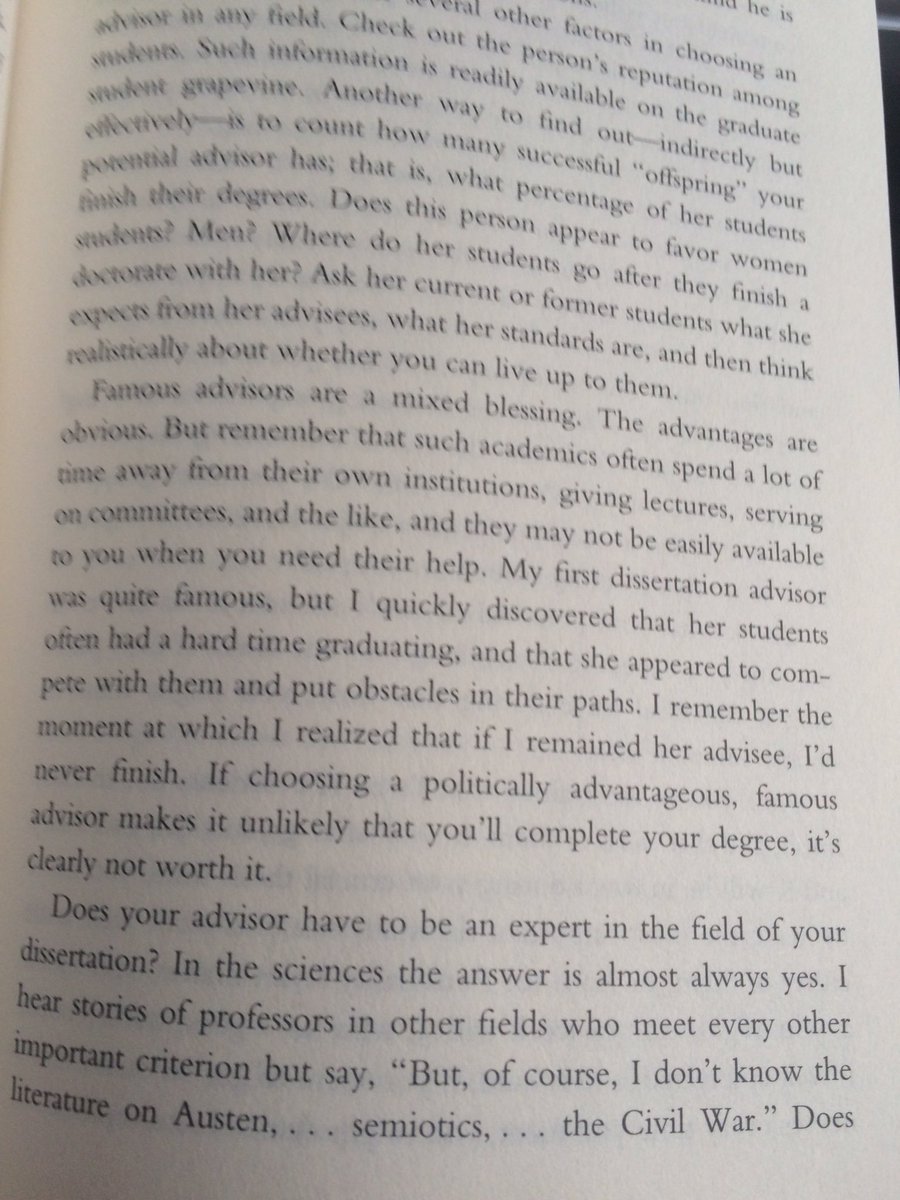
Elinor Ostrom was famous and she was a super dedicated advisor. It's not about the same, it's about being available and answering questions.
On "writing every day": YOU get to define what "every day" means. Bolker's advice applies to everyone, from students to PhD advisors.
Uh oh. The "setting writing quotas" convo. Pages vs words vs hours. Oh dear. Personally I've made much more progress setting small goals. 

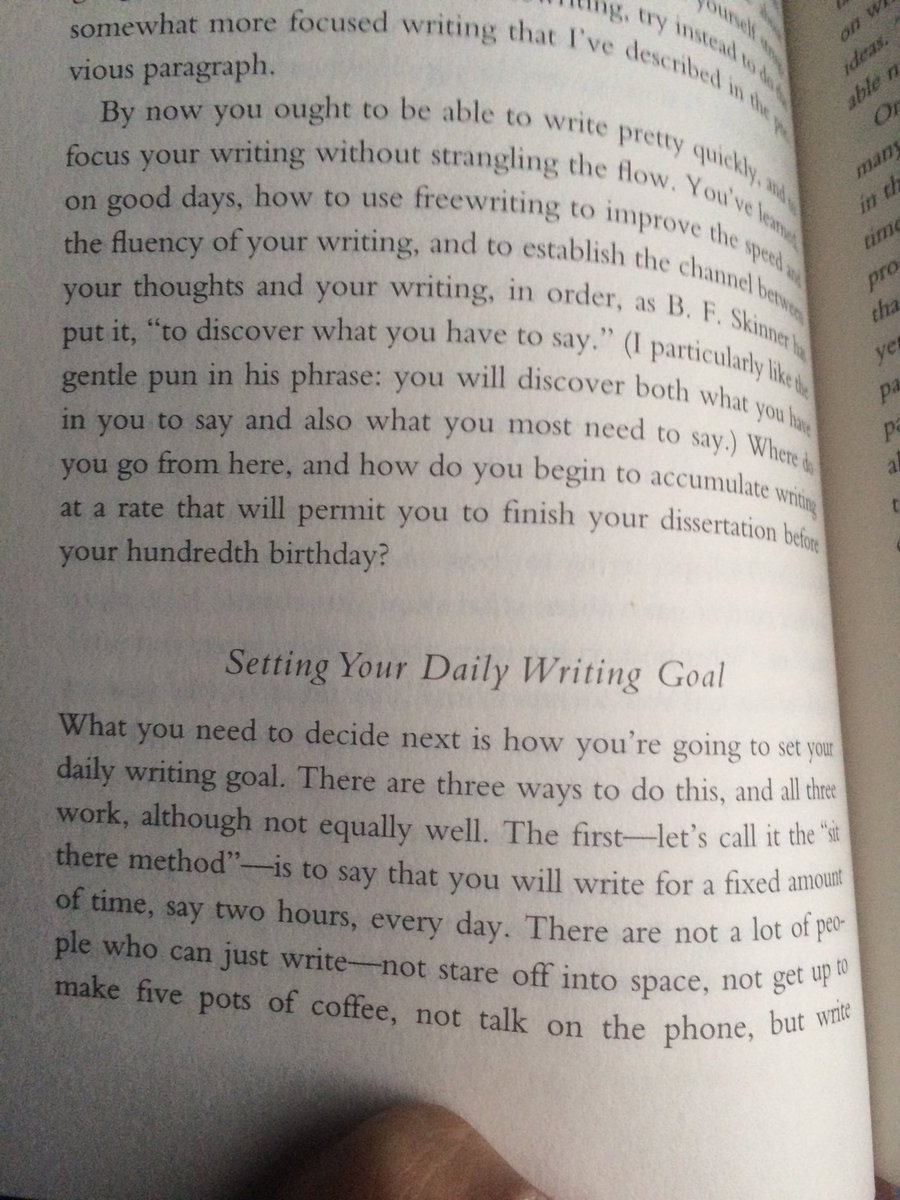
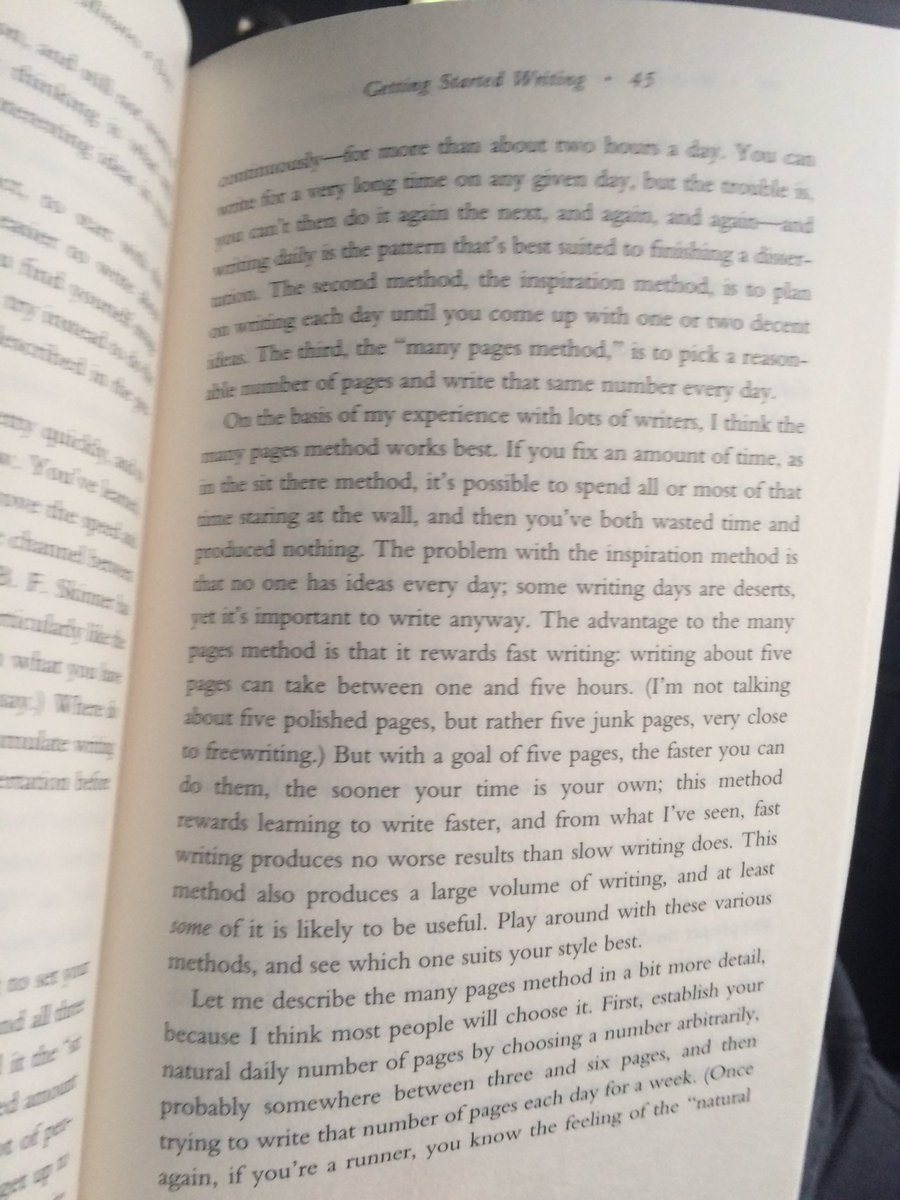
This is going to make some people's blood boil but yes, Virginia, Bolker suggests the first thing in the morning is you should do is write. 
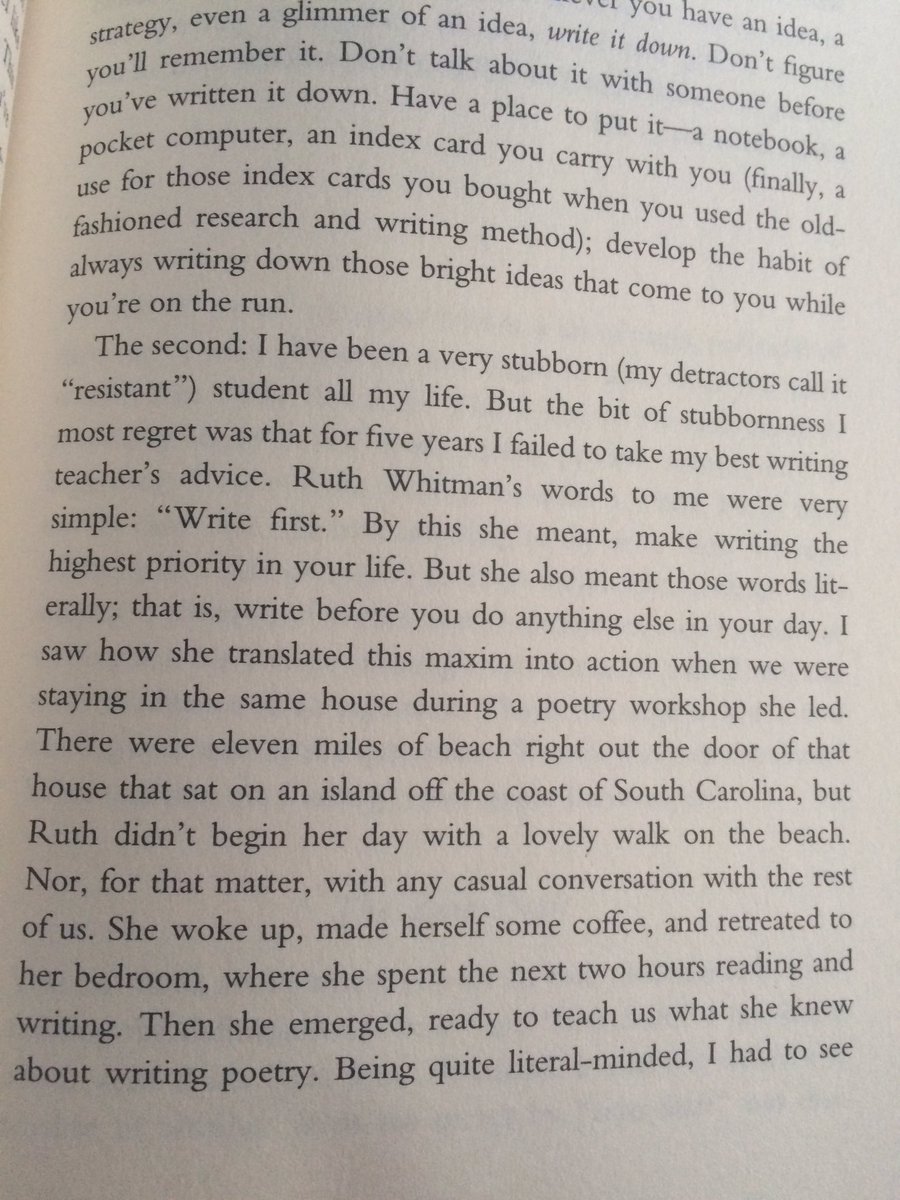
Jesus, I wish I had Bolker or King's speed. 1,250 words doesn't take them more than 1-2 hours? Some days all I generate is 50 words 😰 
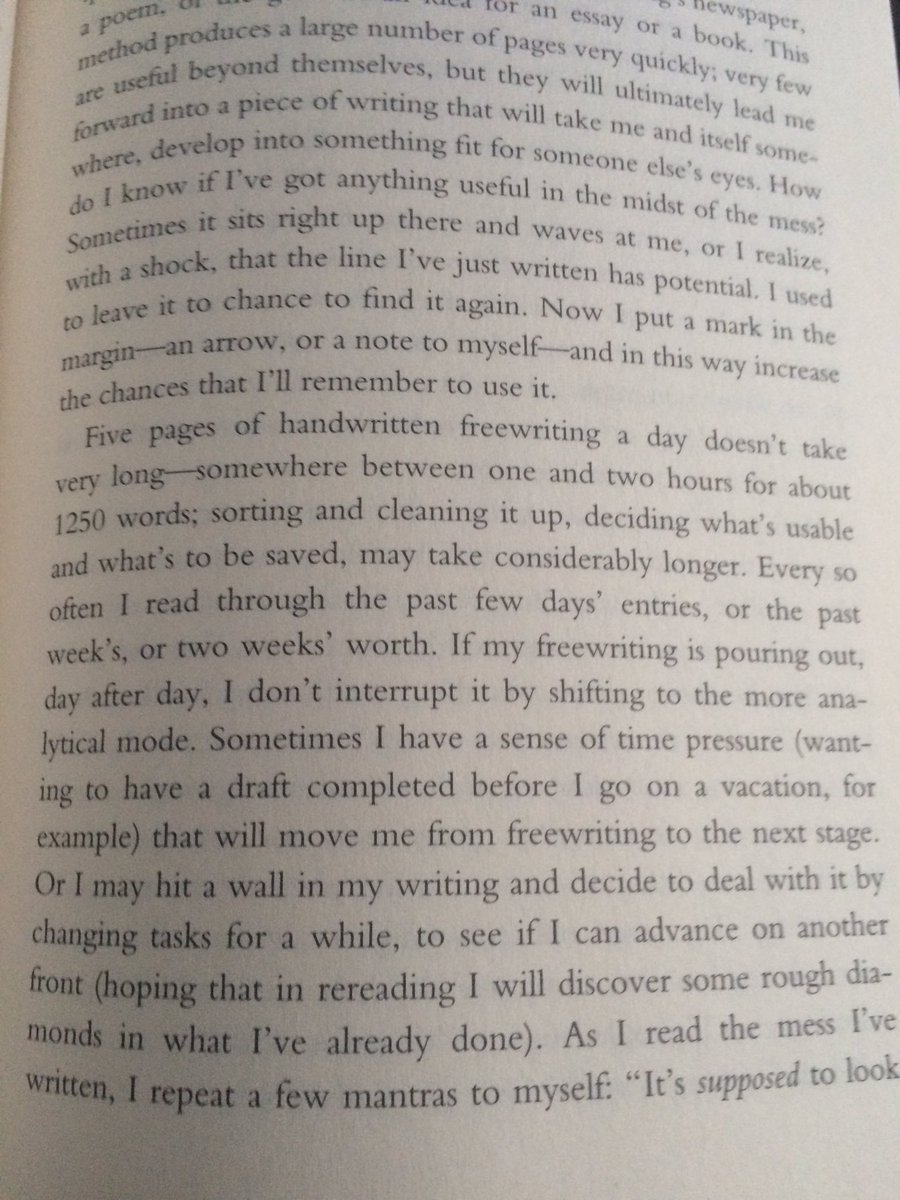
Bolker dislikes chaos and disorganization as much as I do, apparently. She encourages students to revise their processes/setup often. 
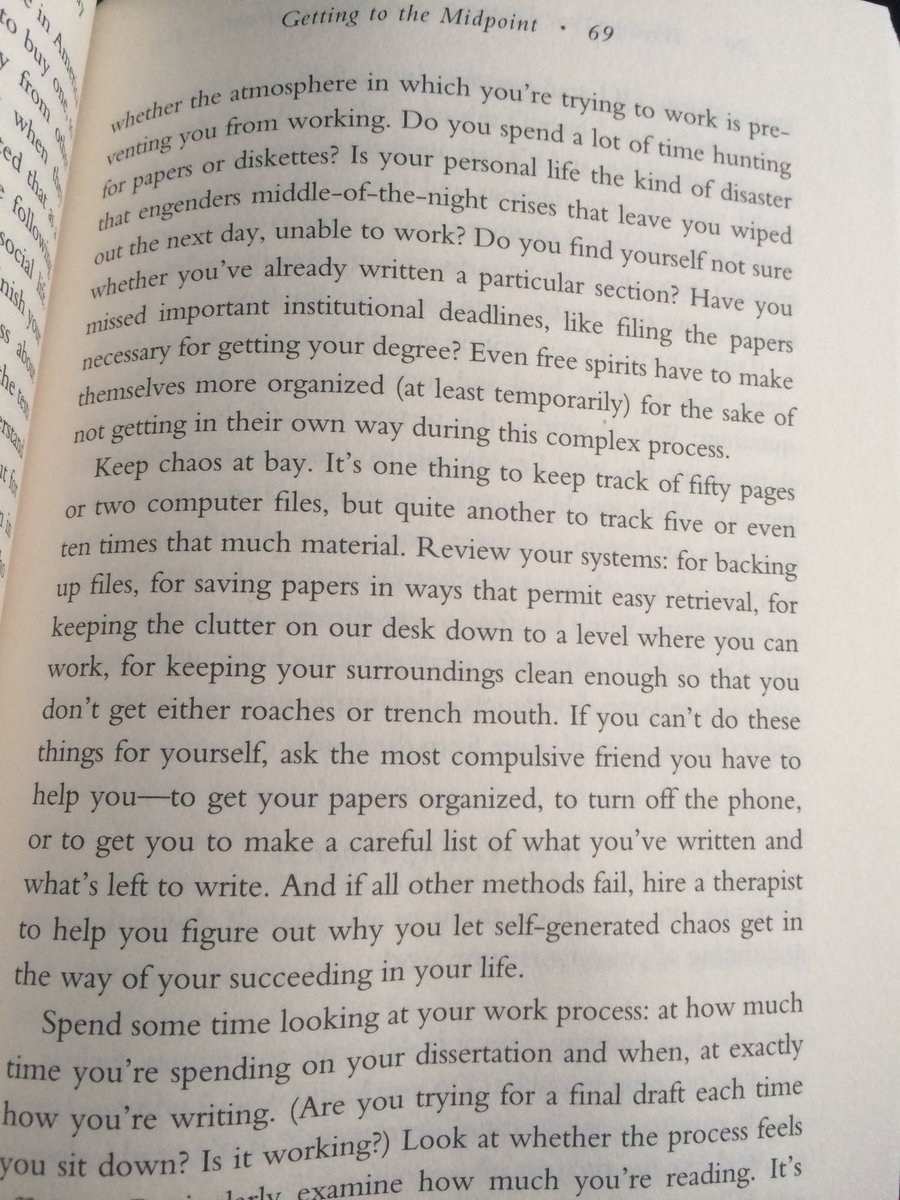
Which is the reason why my home and campus offices (shown here) are so meticulously organized: I need clear, clean surfaces to work well. 

Bolker is right that a Dissertation Support Group helps a lot. @SarahLynnBurch @Feeding9Billion all were helpful to me as we wrote ours.
This is one reason why I insist on having my students join my lab and meet with each other and my research assistants. For mutual support.
VERY disappointed Bolker leaves the least amount of text and fewest tips and pieces of advice for the roughest and toughest stage of the PhD
Yes, the best dissertation is the DONE dissertation but there isn't a solid roadmap (or I haven't seen it yet) for a student in the throes.
How do you deal with setbacks during the last few months of the PhD thesis? I had my heart broken as I was finishing up and it derailed me.
This shortcoming and oversight reaffirms my belief: no book is perfect and nobody covers everything that is needed, so there's always room. 
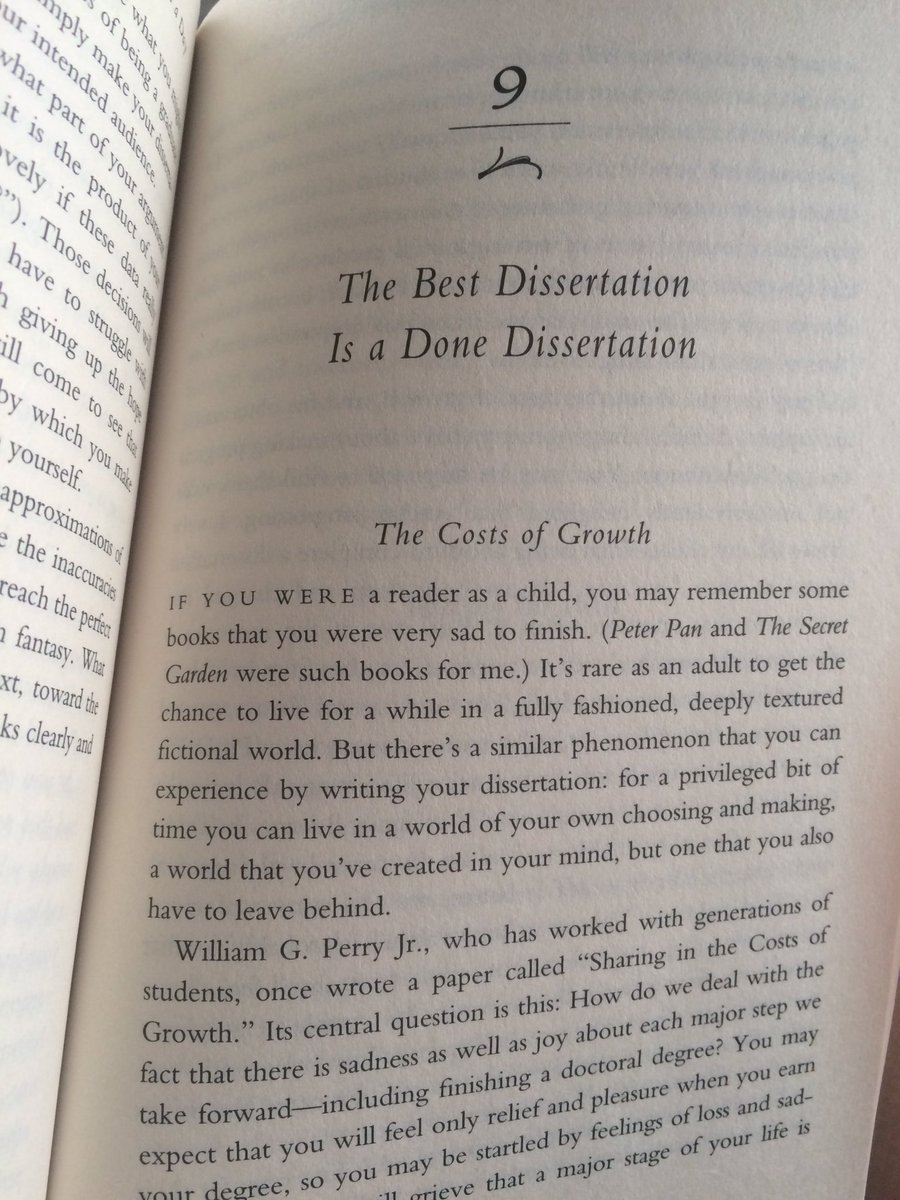
Bottom line: PhD advisors - if you can, purchase this book and if you have the means (grant funds) acquire copies for our students.
Be forewarned, though: so far I haven't read anyone who explains how to get the doctoral dissertation's last few revisions completed.
I figured I should post ALL the #PhDChat dissertation writing books on the same thread, which is going to make it horribly long, but hope you appreciate the tweetage. Now, on to @PJDunleavy 's Authoring a PhD.
I love "Authoring a PhD" by @PJDunleavy - the first chapter helps the PhD student understand what's expected of them and what authoring is. 
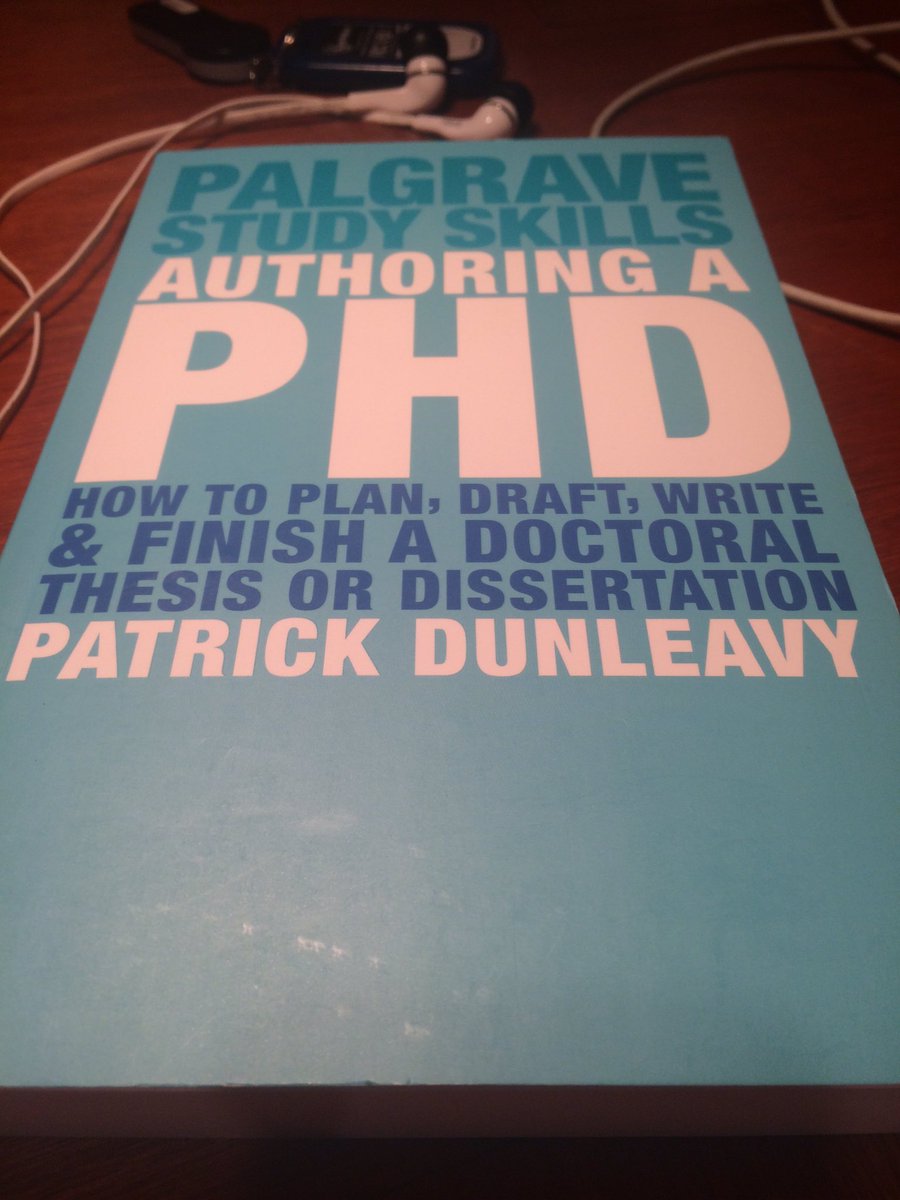
As @PJDunleavy says, you need to envision the thesis as a whole because it is most fundamentally a contract - I'm a big fan of contracts 
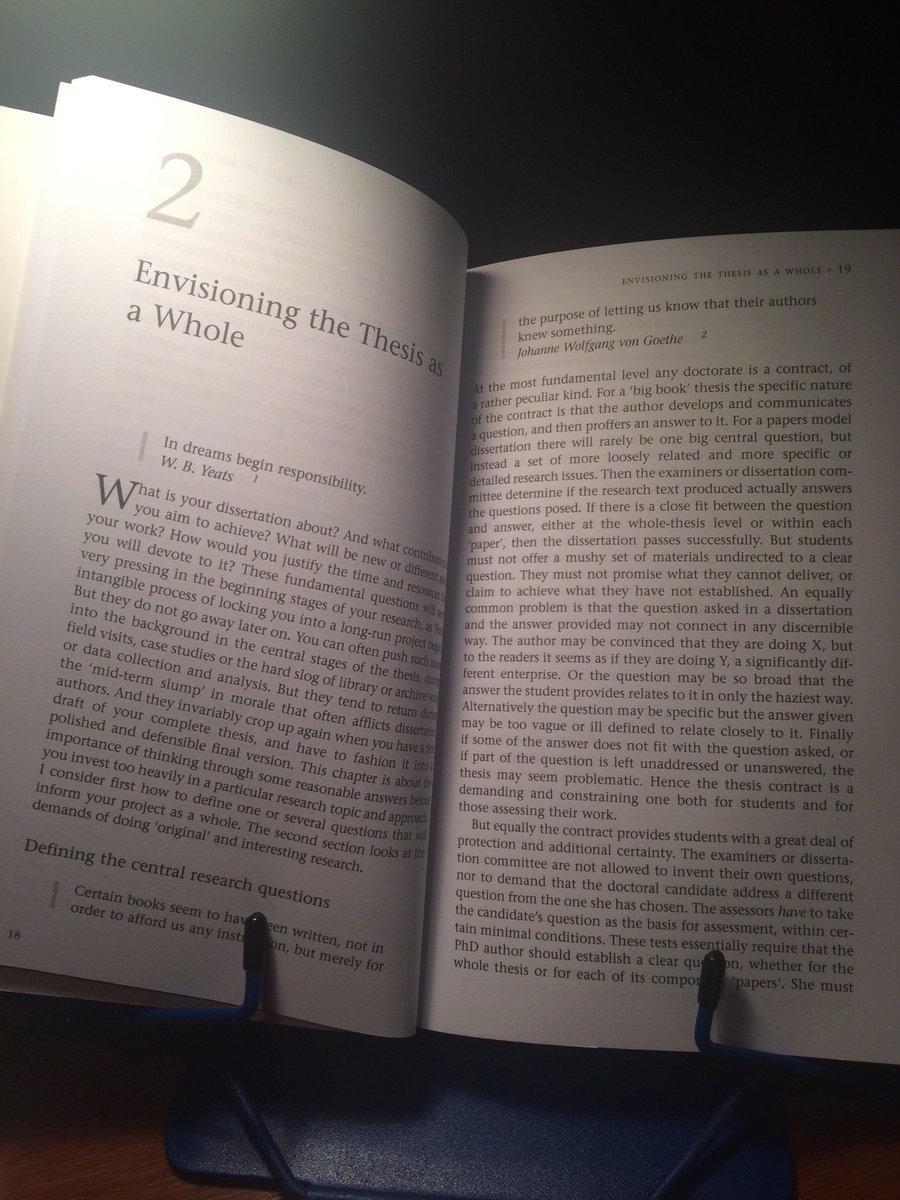
In the second chapter, @PJDunleavy clarifies exactly what is expected from a doctoral dissertation. This varies across countries and disciplines (Dr Dunleavy is based in the UK and is a political scientist but his advice is broad and generalizable enough).
The third chapter on the macro-structure is fantastic because it allows the student to think about explanatory models, structure of the thesis, where the literature review comes, and different strategies to resolve the central question (a gap in the literature, a puzzle)
Fourth chapter is on micro-structure - that is, how chapters or papers should be organized (@PJDunleavy discusses both the big book and three papers model). Something that I loved about Authoring a PhD: the text is BIG so you can actually read it without killing your eyesight.
I really enjoyed that Dunleavy offers 3 chapters on writing, particularly the attention points (data, charts, graphics). And while he only offers one chapter on finishing the dissertation, it's so thorough and filled with good advice, I can appreciate the entire text as excellent
Chapter 9 on publishing post-PhD is an excellent primer for what to do once you've survived the viva (or thesis defence). If I taught a workshop on thesis writing for doctoral students, I would pair Dunleavy with Bolker and add @WmGermano From Dissertation to Book afterwards.
• • •
Missing some Tweet in this thread? You can try to
force a refresh


